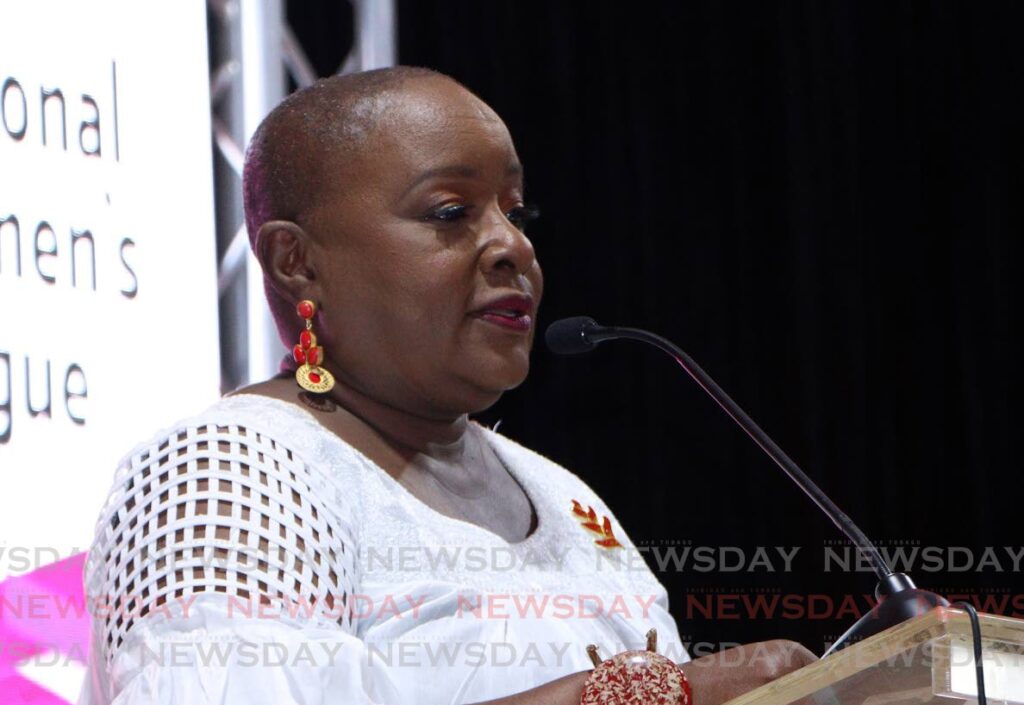

ATTORNEY General Camille Robinson-Regis has reaffirmed the government’s commitment to constitutional reform in response to a Newsday editorial calling for the repeal of the savings law clause.
In a statement on April 8, Robinson-Regis defended the government’s ongoing efforts to modernise the 1976 Republican Constitution, reminding of the 2024 establishment of an advisory committee tasked with developing a national consultation framework for constitutional reform.
The move was first announced by former prime minister Dr Keith Rowley in January 2024, who underscored the need to review outdated constitutional provisions, including Section 6 — the savings law clause.
The clause, originally part of the 1962 Independence Constitution and preserved in the 1976 version, shields pre-existing,colonial-era laws from being invalidated by the Constitution’s fundamental rights provisions.
Robinson-Regis reminded that the advisory committee's July 2024 report recommended repealing Section 6, declaring its retention unjustified after 60 years of legal independence.
>
“Colonial-era laws may be challenged for infringing fundamental rights and declared unconstitutional,” the committee wrote, suggesting that any such declarations could be suspended to allow parliamentary amendment. A repeal of Section 6 would require a two-thirds majority in both Houses of Parliament, a threshold achieved only twice since 1976 — by the NAR with 33 seats and the UNC with 29.
Robinson-Regis also clarified TT’s position as host of the Caribbean Court of Justice (CCJ) while retaining the Privy Council as its final appellate court.
Although the CCJ is headquartered in Port of Spain, she said that its funding is managed by an independent trust, ensuring the court’s autonomy from any single Caricom state.
On the continued use of the UK-based Privy Council, Robinson-Regis noted that abolishing the relationship requires a special majority in Parliament — a goal hindered by opposition resistance.
“With respect to the continued use of the Privy Council as the country’s final appellate court, it is important to understand that any move to abolish this relationship also requires a special majority in Parliament.
“To date, efforts to secure such a majority have not been successful due to a lack of support from the Opposition.”
She also pointed to Opposition Leader Kamla Persad-Bissessar’s “shifting” position on the issue. She said as prime minister in 2012, Persad-Bissessar committed to ending Privy Council appeals in criminal cases in favour of the CCJ but now advocates for a public referendum instead.
Robinson-Regis maintained that the government remained committed to open dialogue on reform and supports regional judicial sovereignty through the CCJ.
In a recent statement, the Law Association also advocated for the removal of the controversial clause.
>
The association said the recent ruling from the Court of Appeal in the Jason Jones’ case, which challenged the constitutionality of TT’s buggery laws, highlighted the “need for urgent constitutional reform to remove the savings law clause.” The Appeal Court noted it was for Parliament, not the courts, to address the issue of removing the clause.
In its statement, LATT said it had consistently advocated for a change to the savings law clause, most recently in its recommendations to the constitutional reform advisory committee.
“The immunisation of colonial laws and punishments from being declared unconstitutional, more than 50 years after independence, has no place in modern times.”
LATT expressed hope that “urgent legislative action will be taken to correct this state of affairs.”
Related News

Leonce delivers steelpans to Rose Hill RC

Economists on collapsed Venezuelan gas deals – Trinidad and Tobago better hope to find gas

Attorney on CBA head destroying CJ portrait: Khan did not speak for me


